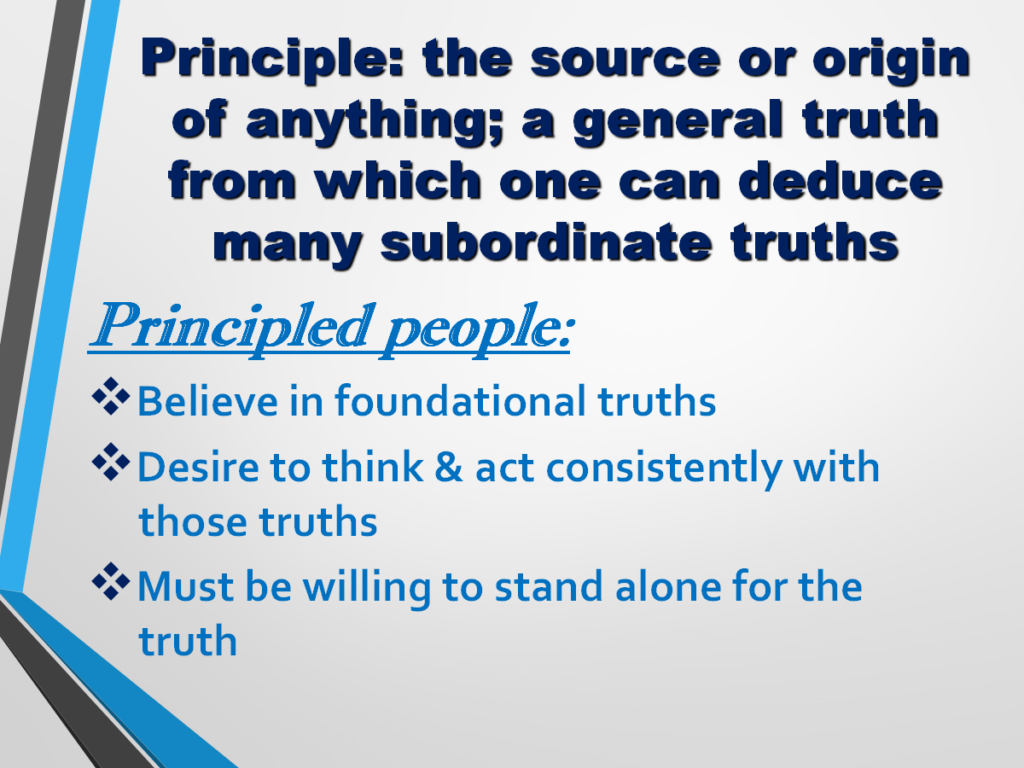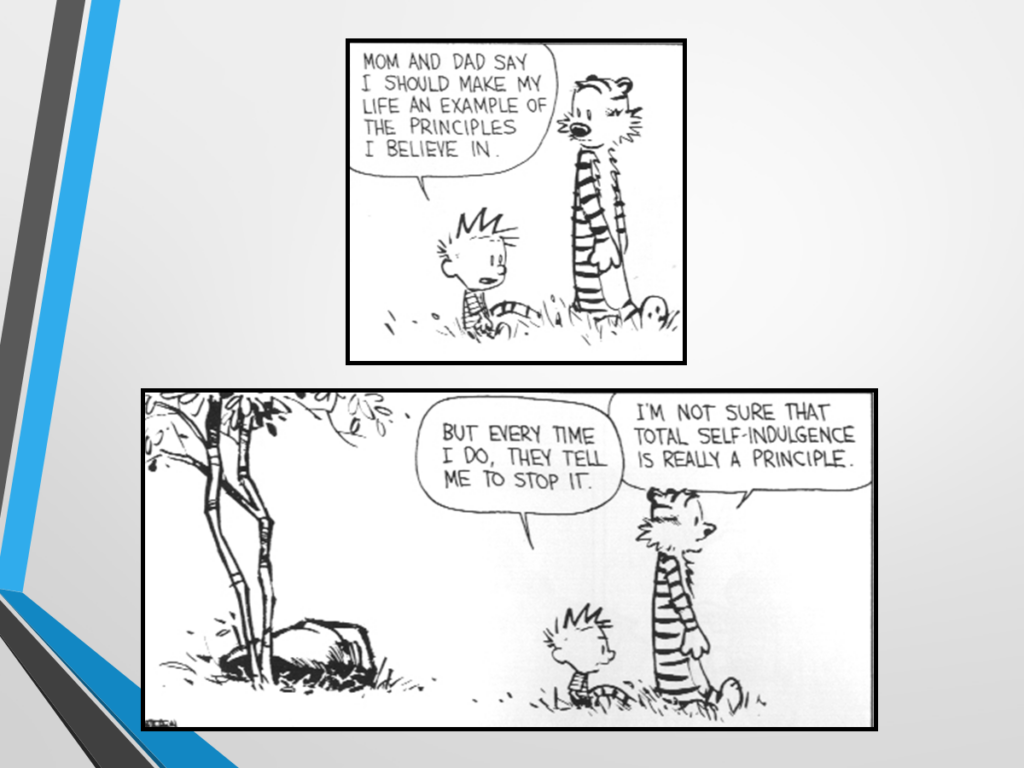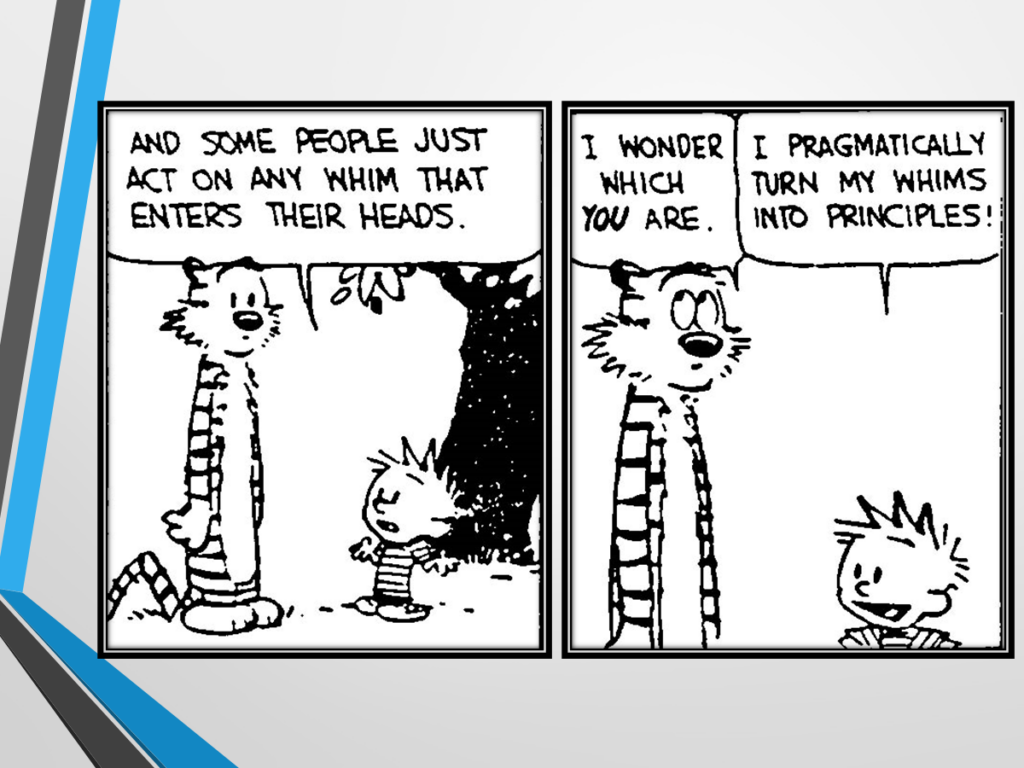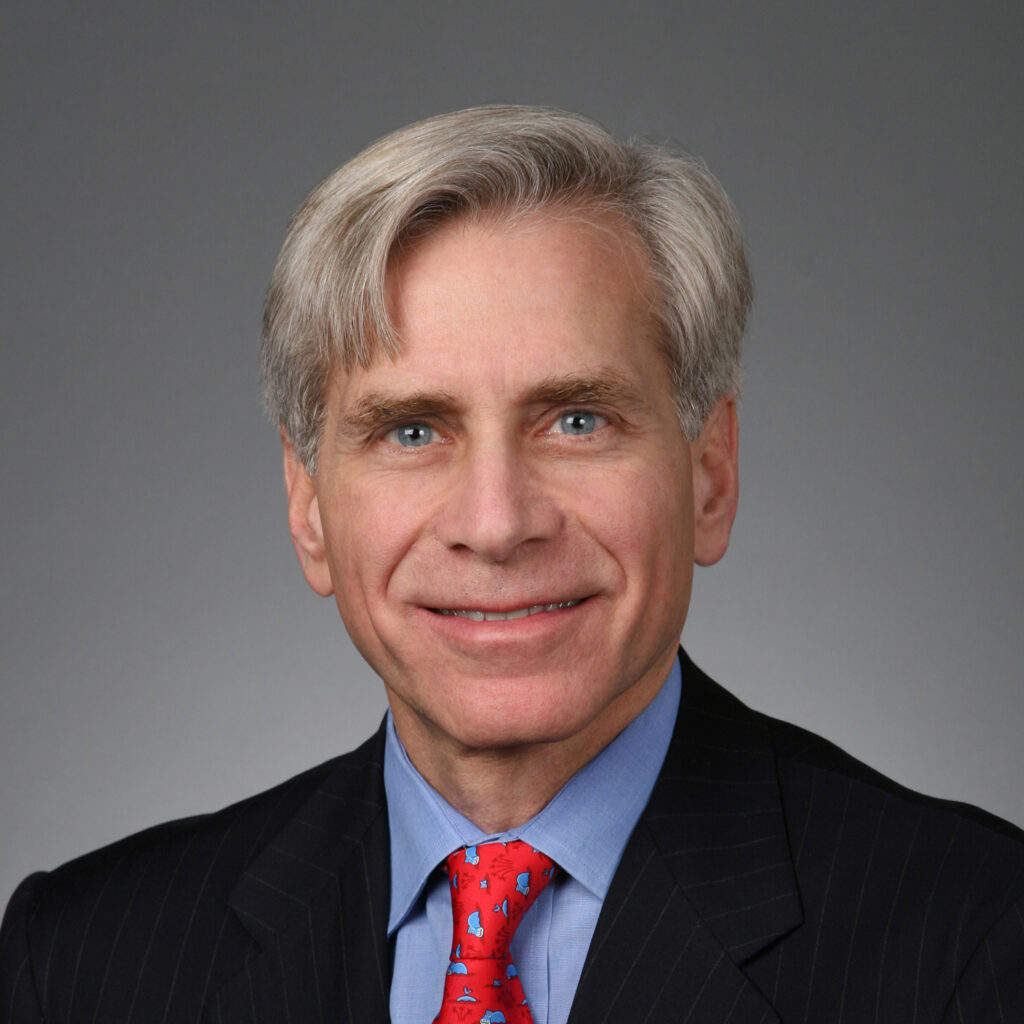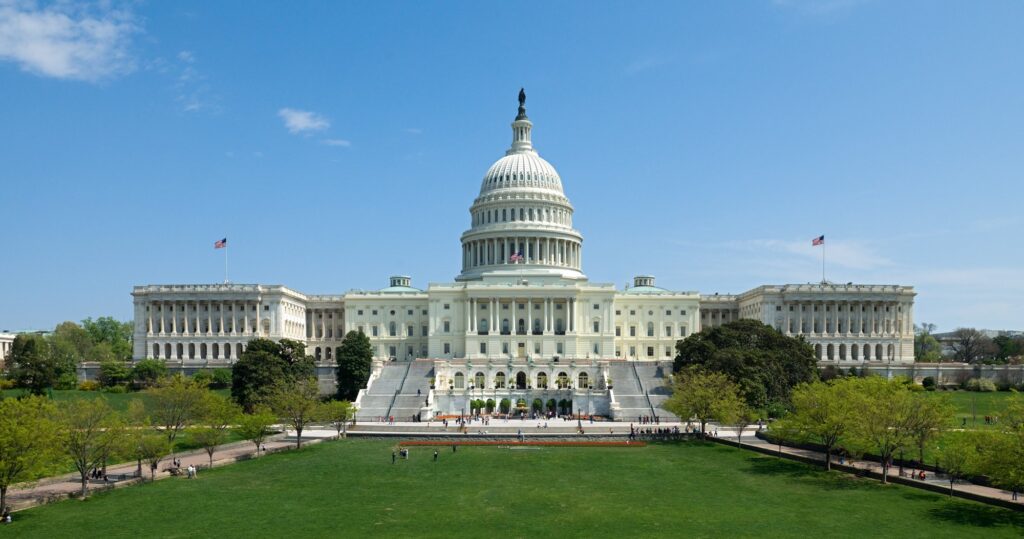I chose the title “Pondering Principles” for my website because I believe that we are called by God to be principled people. I’ve taught hundreds of students the distinction between being principled and being pragmatic. Definitions are essential. Here’s how I have explained what it means to be principled.
Principles are what I would call the “big truths” out of which other truths naturally should flow. Truth must be our foundation for all things, and we must not give only intellectual assent to the truth but walk it out in our lives. And, as noted in the final line above, sometimes standing for principle can mean you stand alone—or at least, in the best case scenario—as part of a minority. Jesus said His road was narrow and few would find it, so we should not be unduly concerned about being in His minority. We only need to make sure that we are truly in His principled road of truth. That’s why I follow up the definition with this caution to my students:
Sometimes, those of us who realize that principles should be our guide might decide, for whatever personal reasons, to misidentify a principle. That’s simply rationalization, and we must be careful not to take that path.
Then I go on to define that other word: pragmatism. Being pragmatic is fine in some ways. For instance, I’m not going to jump off the roof of my church; I know that won’t end well, so I make a pragmatic decision: that won’t work. With that proviso out of the way, I continue.
A pragmatic philosophy, as opposed to some understandable pragmatic decisions in life, sees everything through the lens of “whatever works for me.” What is truth? Whatever I want it to be so that I can achieve my goals, according to this philosophy. If a certain action is “useful” for what I want to accomplish, I will do it regardless whether or not it comports with genuine principles. I then return to one of my favorite sources for how this manifests itself:
That last line, sadly, is pervasive in our society. We might still talk about principles, but often they are merely whims that pragmatically—magically?—become principles. Phony ones, to be sure.
This concern for principle over pragmatism covers all aspects of life, both personal and corporate. On the personal level, we need to be consistent people, focused on principle regardless of the circumstances in which we find ourselves. The temptation to abandon principle for short-term gain is a losing proposition spiritually. If we gain the whole world and lose our soul, we lose everything of true value.
In the church universal (not restricted to specific denominations), I see loss of principle when it comes to bedrock Biblical doctrines. Sanctity of life is one of those, for both the pre-born and those who are entering their final years. Sexual morality, as understood throughout church history, is also under fire from within. Just because a culture has changed its opinion about what is acceptable, that doesn’t mean God has. His reasons are always good; they lead us to flourishing lives without guilt and remorse as He offers forgiveness for all who repent of their sins.
We tend to focus on those issues I just mentioned, but a sober look at God’s standards/principles for life reveals that issues such as pride, arrogance, lying, greed, and neglect of others in need are of equal significance. I agree with C. S. Lewis that all sins really begin with pride, with us placing ourselves on the throne instead of God.
Lack of principles has been present in our politics in all eras, but there are gradations. One of the cornerstones of our government has always been adherence to the rule of law, meaning that no one is above the law. Even those at the highest levels of the government are subject to the same laws as everyone else, as well as the same penalties for engaging in lawlessness.
I am a member of a fairly new organization called the Society for the Rule of Law. Although I am not a lawyer, as a professor of history, my teaching has had a particular concentration on government philosophy. For more than 35 years, I have studied and taught in depth on America’s founding principles, one of which is the rule of law, which is what gave rise to our Constitution.
One member of the Society for the Rule of Law is Alan Raul, who served in the Ronald Reagan administration as Associate White House Counsel before moving over to become General Counsel to the Office of Management and Budget. He continued in that latter post during the presidency of George H. W. Bush.
Raul, as Board Secretary for the Society, recently published an opinion piece in the Washington Post that focused on the new agency with the name Department of Government Efficiency (DOGE). Raul sees DOGE as “shattering the fundamental checks and balances of our constitutional order.” One paragraph summarizes his constitutional analysis concisely:
The Trump-Musk quest for government efficiency is led by a “department” that Congress did not establish, by unelected operatives who exercise overwhelming authority without appointment under the appointments clause, who are not subject apparently to any checks and balances, who are not faithfully executing the laws Congress has appropriated and legislated, and who are in the process of eliminating whole agencies, programs and millions of employees without any congressional authorization whatsoever.
Some people may look at that analysis and think, “Well, so what? As long as it reduces waste, I’m all for it.” That kind of thinking is purely pragmatic, taking no account whatsoever of principles. The Constitution was established to set up processes by which change can take place in the government. There are laws on the books that tell us how that is to be done. These laws and processes, in many instances, are not being followed. Therefore, we have violated the entire concept of the rule of law by the manner in which DOGE was created, by giving it such broad authority, and by tossing aside all legislation and the appropriations that were attached.
This is called lawlessness.
Why is this allowed to happen? After all, we still have a Congress. Yet, here’s where we see the effects of lack of principle revealing itself. Republicans, for my entire adult life, were the party talking about principles the most. They were adamant for the importance of following the Constitution and spoke loudly against possible dictatorial powers in the presidency. They were the limited government party.
That is no longer the case.
I’ve watched in amazement and dismay as one after another of those politicians that I thought were principled have transformed into sycophants for the leader of their party. They have rubber-stamped one controversial cabinet nominee after another, even those who are obviously opposed to their presumed principles. As just one example, we now have a Secretary of Health and Human Services who has been 100% pro-abortion all his life. And no one in the Republican party in Congress took a principled stand against him for the post.
I’ve written in previous posts a couple of years ago about my being in the political wilderness. That wilderness has now become a dry and dusty desert. I am not at home anywhere anymore when it comes to politics.
God has used this sobering experience to remind me that His church is more important than politics and that my personal relationship with Him is paramount to anything this temporal world has to offer. Many in the American church don’t agree with my perspective on politics, but I seek always to be civil with everyone who may disagree. Jesus says we are to love each other and I take that seriously. My hope is that others will see that I am doing my best to be the kind of principled Christian that the Lord desires.
I want everyone to like me. But, more than that, I want the Lord to approve of me.
“Whoever wants to be my disciple must deny themselves and take up their cross and follow me. For whoever wants to save their life will lose it, but whoever loses their life for me and for the gospel will save it. What good is it for someone to gain the whole world, yet forfeit their soul? Or what can anyone give in exchange for their soul? If anyone is ashamed of me and my words in this adulterous and sinful generation, the Son of Man will be ashamed of them when he comes in his Father’s glory with the holy angels.” Mark 8:34-38

